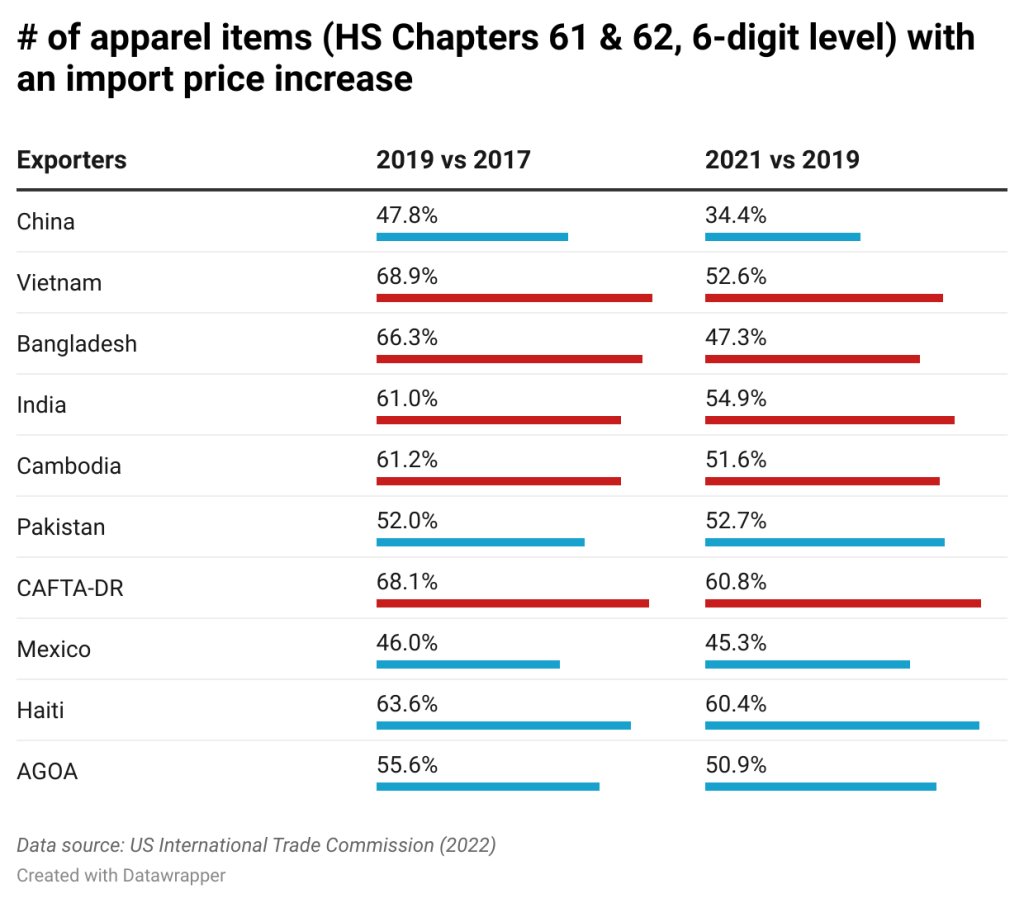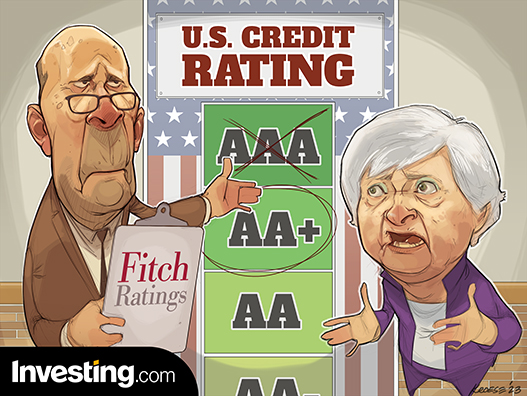Poll: Most Dutch Against EU Retaliation On Trump Import Duties

Table of Contents
Key Findings of the Dutch Poll on EU Trade Retaliation
Majority Against Retaliation
The poll, conducted by [Insert Pollster Name and Date], revealed that a substantial majority of Dutch citizens oppose the EU's retaliatory tariffs against the US. A staggering [Insert Percentage]% of respondents indicated their disapproval of such measures. This represents a significant majority and is considerably higher than [Insert comparative data if available, e.g., the European average]. The level of opposition varied somewhat across demographics:
- Specific percentage of respondents opposed to retaliation: [Insert Percentage]%, with a margin of error of [Insert Margin of Error]%.
- Age demographics showing support/opposition: Younger demographics showed slightly more support for retaliation (though still a minority), while older generations expressed stronger opposition.
- Regional variations within the Netherlands: While opposition was widespread, the strongest resistance to retaliatory tariffs came from [Insert Region, if applicable].
Concerns about Economic Impact
The primary reason cited for opposing EU retaliation was concern over the potential negative economic consequences for Dutch businesses and consumers. The Netherlands, with its highly export-oriented economy, is particularly vulnerable to trade wars.
- Examples of specific Dutch industries vulnerable to trade wars: The agricultural sector, particularly flower exports, and manufacturing industries heavily reliant on US markets are acutely susceptible to tariff-related disruptions.
- Potential impact on Dutch jobs and employment: Retaliatory tariffs could lead to job losses in affected sectors and dampen overall economic growth.
- Increased prices for consumers due to tariffs: Consumers would likely face higher prices on imported goods, impacting household budgets and reducing purchasing power.
Public Sentiment Towards Trump's Trade Policies
The poll also explored Dutch public perception of Trump's trade policies. While a significant portion disapproved of the tariffs imposed by the US administration, the overall sentiment was more nuanced than simply pro or anti-Trump.
- Level of approval/disapproval of Trump's trade policies among Dutch citizens: [Insert Percentage]% disapproved of Trump's trade policies, while [Insert Percentage]% either approved or had no strong opinion.
- Public awareness of the impact of US tariffs on the Netherlands: Awareness of the specific impact on the Dutch economy was relatively high, with [Insert Percentage]% of respondents aware of the potential negative consequences.
- Comparison to public sentiment in other EU nations: Further research is needed to compare Dutch sentiment with that of other EU member states; however, preliminary indications suggest a similar trend of concern regarding potential trade war impacts across several nations.
Political Implications of the Poll Results
Pressure on the Dutch Government
The strong opposition to EU retaliatory tariffs puts considerable pressure on the Dutch government. Their stance in EU trade negotiations will be heavily scrutinized, and the poll results could significantly influence their policy decisions.
- Potential impact on Dutch government policy regarding EU trade negotiations: The Dutch government may be compelled to advocate for more moderate and less confrontational approaches in EU trade discussions.
- Pressure on Dutch MEPs to advocate for alternative solutions: Dutch Members of the European Parliament will likely face pressure from their constituents to support alternative strategies that avoid escalation of trade conflicts.
- Potential for internal political divisions within the Dutch government: Differing views within the government on the best approach to trade negotiations could lead to internal political tensions.
EU-wide Implications
The Dutch poll findings may reflect a broader trend within the EU. While further research is needed to confirm this, the results suggest a growing public concern over the economic repercussions of trade wars.
- Comparison with public opinion polls in other EU member states: [Include comparative data if available, linking to relevant articles/polls].
- Potential impact on the EU's overall trade strategy: The widespread concern about economic consequences could compel the EU to reassess its trade policies and prioritize de-escalation strategies.
- Challenges faced by the EU in balancing national interests with a unified trade policy: The varying levels of vulnerability and public sentiment across EU member states present significant challenges to maintaining a cohesive and effective trade strategy.
Conclusion
The poll clearly indicates strong Dutch Opposition to EU Tariffs in response to Trump's import duties, revealing a significant public concern over potential economic consequences. This sentiment places considerable pressure on the Dutch government and could influence the EU's broader trade strategy. Understanding the underlying economic anxieties and the potential for internal political divisions within the Netherlands, alongside comparative sentiment within other EU countries, is crucial for navigating this complex international trade landscape.
To delve deeper into this critical issue and understand Dutch sentiment on EU trade policy, we encourage readers to explore the original poll data [link to original poll if available] and share their opinions. Analyzing the Dutch perspective on Trump-era tariffs is vital for informing future trade negotiations and mitigating potential harm to both Dutch businesses and the wider EU economy.

Featured Posts
-
 Understanding The Importance Of Middle Managers In Todays Business Environment
May 18, 2025
Understanding The Importance Of Middle Managers In Todays Business Environment
May 18, 2025 -
 Bowen Yang Defends Ego Nwodims Viral Snl Weekend Update Bit
May 18, 2025
Bowen Yang Defends Ego Nwodims Viral Snl Weekend Update Bit
May 18, 2025 -
 A Critical Analysis Of Trumps Middle East Tour And Its Implications
May 18, 2025
A Critical Analysis Of Trumps Middle East Tour And Its Implications
May 18, 2025 -
 Moodys Us Downgrade White House Condemnation And Economic Fallout
May 18, 2025
Moodys Us Downgrade White House Condemnation And Economic Fallout
May 18, 2025 -
 The Impact Of A Weakening Ocean Current System On Us Sea Level Rise
May 18, 2025
The Impact Of A Weakening Ocean Current System On Us Sea Level Rise
May 18, 2025
Latest Posts
-
 Kanye Wests Funeral Instructions Inspired By Pasha Technik
May 18, 2025
Kanye Wests Funeral Instructions Inspired By Pasha Technik
May 18, 2025 -
 Did They Split Kanye West And Bianca Censori Dine Together In Spain
May 18, 2025
Did They Split Kanye West And Bianca Censori Dine Together In Spain
May 18, 2025 -
 Pokhorony Po Uestovski Vdokhnovenie Ot Pashi Tekhnikom
May 18, 2025
Pokhorony Po Uestovski Vdokhnovenie Ot Pashi Tekhnikom
May 18, 2025 -
 Instruktsiya Kane Uesta K Sobstvennym Pokhoronam Vdokhnovenie Ot Pashi Tekhnikom
May 18, 2025
Instruktsiya Kane Uesta K Sobstvennym Pokhoronam Vdokhnovenie Ot Pashi Tekhnikom
May 18, 2025 -
 Kanye West Bianca Censori Enjoy Dinner Date In Spain Amidst Relationship Speculation
May 18, 2025
Kanye West Bianca Censori Enjoy Dinner Date In Spain Amidst Relationship Speculation
May 18, 2025
